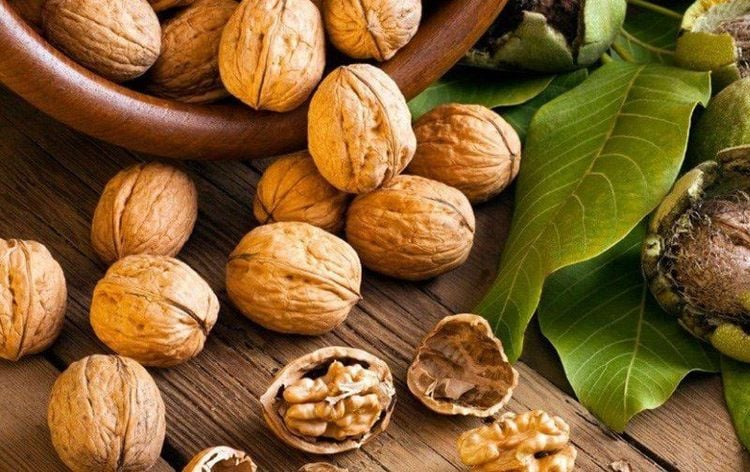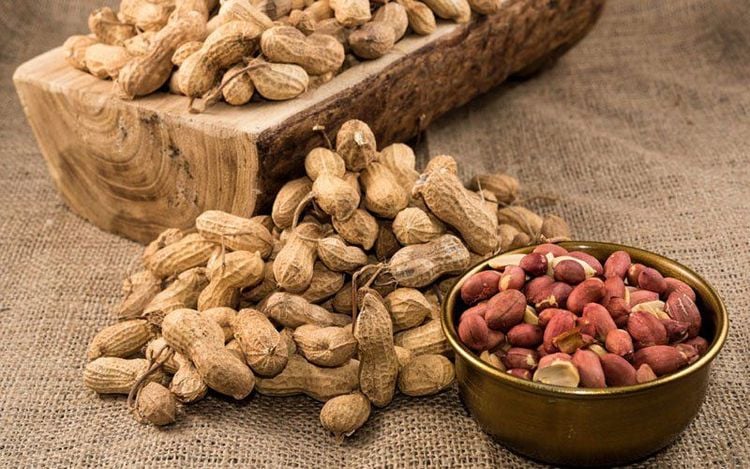Walnuts are known for their various health benefits, such as preventing heart disease, stroke and improving the digestive system. So can diabetics eat walnuts? In fact, diabetics who eat walnuts can control their blood sugar levels well as well as prevent dangerous complications that may occur.
1. Can diabetics eat walnuts?
A recent study concluded that eating walnuts can significantly reduce the risk of type 2 diabetes. Accordingly, diabetics who eat walnuts can reduce fasting insulin levels, effectively preventing hyperglycemia.
In addition, the amount of monounsaturated and polyunsaturated fats that are beneficial for the heart in walnuts helps reduce bad LDL cholesterol levels, while increasing good HDL cholesterol levels, thereby preventing the accumulation of plaque in the arteries.
In addition, walnuts can promote a feeling of fullness, prevent cravings and effectively support weight loss, avoiding the development of obesity - one of the important factors that cause cancer and diabetes.
Walnuts contain alpha-lipoic acid (ALA), which effectively reduces inflammation. Inflammation is a condition closely related to the development of diabetes as well as other diseases such as heart disease and Alzheimer's disease.
2. Some other nuts are good for people with diabetes
People with type 2 diabetes who eat 5 servings of nuts a week will reduce the rate of heart disease by up to 20% compared to those who eat less than one serving a month.
However, not all nuts have the same effect. Studies show that nuts that grow on trees seem to bring more benefits to cardiovascular health as well as support the treatment of diabetes than nuts that grow on the ground. Tree nuts include almonds, walnuts, cashews, pistachios, pecans, hazelnuts, and pine nuts.
In addition to walnuts, here are some good nuts for people with diabetes, including:
2.1. Almonds
According to a recent study, almonds help control glucose levels and reduce the risk of cardiovascular disease for patients with type 2 diabetes. Almonds are also a good source of fiber, which helps you feel full longer, keeps blood sugar levels more stable, and is great for the digestive system.
About 3 tablespoons of almonds (a 1-ounce serving) provide up to 80 mg of magnesium, which is helpful for people with diabetes who are deficient in this mineral. Increasing magnesium intake also helps promote healthy bones, regulate blood pressure levels, control blood sugar levels, and promote nerve and muscle function.

2.2. Pistachios
Pistachios are rich in fiber, healthy fats and protein, which help you stay full longer and support good digestive functions.
People with diabetes can choose pistachios as a snack because the monounsaturated fat in this nut has the effect of reducing bad LDL cholesterol levels and effectively improving blood sugar levels.
In addition, you can also combine pistachios with some other dishes, such as salad, toast, grilled fish or grilled chicken.
2.3. Peanuts
Peanuts are a very filling snack that is friendly to diabetes thanks to its high fiber and protein content. Not only do they have a low glycemic index (GI), but they are also extremely effective in regulating blood sugar levels.
Research has shown that adding two tablespoons of peanut butter to your meal will help prevent a spike in blood sugar levels after eating. In addition, this nut also brings some benefits to cardiovascular health in diabetic patients. Nutritionists recommend that people with diabetes should eat peanuts regularly to reduce the risk of developing cardiovascular disease and prevent an increase in bad LDL cholesterol levels in the body.
You can combine low-sodium peanut butter with smoothies, oatmeal, stir-fries or salads in your diet to achieve the above optimal benefits.

3. How should people with diabetes eat walnuts?
With the above information, you can completely answer the question: "Are walnuts good for people with diabetes?". Although consuming nuts is good for many aspects of the health of people with diabetes, people with diabetes should consume nuts in moderation, including walnuts.
Walnuts contain a lot of fat, mostly good fats, but they can cause weight gain if consumed in excess. This will counteract any health benefits that walnuts bring.
In addition, people with diabetes should also choose unsalted or salt-restricted walnuts, because excess salt can increase the risk of cardiovascular disease and stroke. You should eat raw, minimally processed and unsalted walnuts.
To arrange an appointment, please call HOTLINE or make your reservation directly HERE. You may also download the MyVinmec app to schedule appointments faster and manage your reservations more conveniently.
Reference sources: everydayhealth.com, webmd.com












